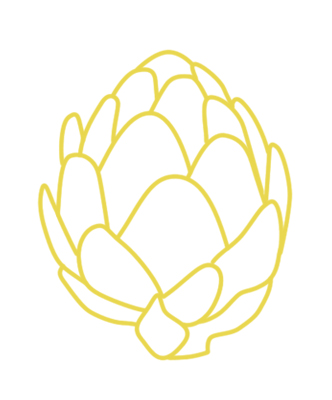I often get asked if a plant-based diet is healthful and sustainable for living. The answer is yes, a plant-based diet can be sustainable. It’s our approach and how we go about monitoring our health that determines if it will be.
Plant-Based Eating
Plant-based eating is a term used for those who eat foods that are mainly grown from the ground. These individuals may or may not consume animal meat or food derived from animals.
There are different types of plant-based diets and the differences between them can get confusing. Below is a quick reference guide:
*Going forward in this post, when I reference vegetarians, I’m including semi- lacto-ovo, lacto-, and ovo-vegetarians.
Why be plant-based?
Being plant-based has its benefits. Studies have shown that vegetarian and vegan diets can improve your cholesterol and blood pressure, can be protective against certain cancers, and can help lower your risk of developing cardiovascular disease and diabetes.
The reason for these health advantages is likely due to the higher levels of fiber, vitamins C and E, folate, magnesium, potassium, and phytochemicals in a plant-based diet.
I am plant-based. Am I doing it right?
A quality plant-based diet doesn’t just mean eating grains and meat substitutes.
If you take a look at what you’re eating and it consists of a variety of vegetables, fruits, plant-proteins like nuts and beans, and whole grains, chances are you’re doing a good job. However, if you look at your meals and they consist mainly of things like bread and pasta with a few vegetables, fruits, and plant-proteins, you might want to switch it up a bit.
Variety is the key component of a balanced diet. Eating a diverse diet, containing all essential food groups will help you maintain good health.
The Concerns
Vegetarians generally have an easier time meeting their nutrition needs compared to vegans because they have a wider variety of foods to choose from. To get adequate nutrition as a vegan, it’s important to know which nutrients are difficult to obtain in a vegan diet and which foods contain them.
| NUTRIENT | FUNCTION | NON-VEGAN SOURCES | VEGAN SOURCES |
|---|---|---|---|
| PROTEIN | Helps to build and repair cells in the body. Important for your bones, muscle, skin, and blood. |
Fish Fowl Meat (beef, pork) Dairy (milk, yogurt) Eggs |
Tofu Tempeh Soy milk Pulses (beans, lentils, peas) Nuts & Seeds Nut butters (peanut, almond, etc) Whole grains |
| OMEGA-3 | Heart health Eye and brain development |
Fish Eggs |
Walnut Flaxseeds Chia seeds Hemp seeds Canola oil Soy Microalgae supplements |
| CALCIUM | Bone strength and mass | Dairy (milk, yogurt, cheese) Sardines |
Tofu Green vegetables (mustard, turnip, bok choy, kale) Fortified juices and foods |
| IRON | Helps red blood cells supply oxygen to our muscles | Red meat Organ meat Fowl Fish (salmon, tuna, halibut, sardines) Seafood (clams, mussels, oysters) |
Nuts Beans Whole grains Dark green leafy vegetables (kale, collards, bok choy) - Nuts, beans, and grains that have been soaked or sprouted promote a higher absorption of iron - When these iron-rich foods are consumed with high vitamin C foods like citrus fruits and bell peppers, iron is absorbed into the body better |
| VITAMIN D | Used to help absorb calcium into the bone Maintain bone strength |
Sunlight Fatty fish (salmon, mackerel, sardines) Egg yolk Fortified milk |
Sunlight Fortified non-dairy milks and orange juice Mushrooms Supplementation from Vitamin D2 or D3 derived from lichen - Be careful, Vitamin D3 can also be derived from animal sources |
| VITAMIN B12 | Helps to produce healthy blood cells Prevents damage to the nervous system |
Red meat Milk |
Fortified foods like cereals, soy products, non-dairy milks Nutritional Yeast Vitamin B-12 supplementation of 1-25 mcg/day is recommended |
| ZINC | Maintain healthy immune system Helps to enhance the senses of smell and taste |
Oysters Red meat Poultry |
Nuts Beans Whole grains Fortified breakfast cereals and non-dairy products - Nuts, beans, and grains that have been soaked or sprouted promote a higher absorption of zinc |
Takeaways
It’s possible for vegetarians and vegans to get adequate nutrition from food and supplementation.
Food first. Food is the best form of nourishment. Working to incorporate a diversity of foods is critical to get a majority of your nutrients.
It’s highly recommended that vegetarians and vegans take vitamin D and vitamin B12 supplements because food sources alone cannot provide what the body needs.
Even if you’re someone who doesn’t want to consume a vegetarian or vegan diet, aiming to eat more meatless meals throughout the week can help you reap the health benefits.

